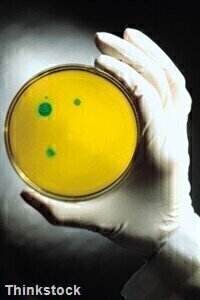-
 Mass spectrometry-based identification of biologically active substances could benefit from software for the elimination of false-positive results
Mass spectrometry-based identification of biologically active substances could benefit from software for the elimination of false-positive results
Bioanalytical
Eliminating spurious matches in MS-based ID of biologically active substances
Sep 07 2010
Scientists at the University of Sydney have devised an open source tool named Harvest to analyse fragmentation patterns in order to differentiate between random and correct assignments of peptides in MS-MS experiments.
This quantitative analysis is the first time software has been developed specifically to implement and assess novel metrics for peptide matching and to explore a particular set of data's fragmentation patterns, they say.
Written in C++, the program allows fragmentation properties to be explored; however, the developers insist that it is not intended to maximise the proliferation of assigned peptides arising from a set of unknown spectra.
They also stress that the software is not for direct identification of biologically active substances, but for the assessment of the quality of obtained data, leading to a difference between its research applications and those of similar programs already commercially available.
Digital Edition
Chromatography Today - Buyers' Guide 2022
October 2023
In This Edition Modern & Practical Applications - Accelerating ADC Development with Mass Spectrometry - Implementing High-Resolution Ion Mobility into Peptide Mapping Workflows Chromatogr...
View all digital editions
Events
ACS National Meeting - Fall 2024
Aug 18 2024 Denver, CO, USA
Sep 04 2024 Chiba, Tokyo, Japan
Sep 04 2024 University of Warwick, Coventry, UK
Sep 10 2024 Rockville, MD, USA
Plastics Recycling World Expo Europe
Sep 11 2024 Brussels, Belgium













